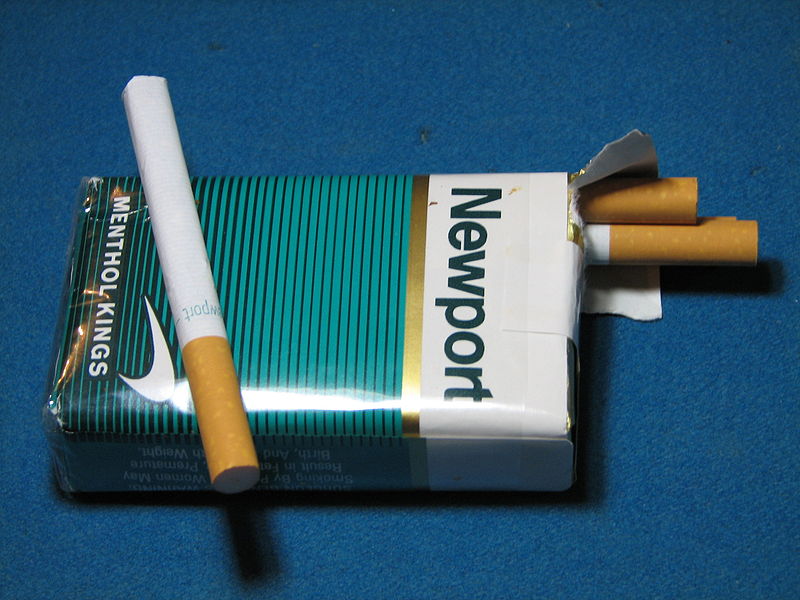
The Food and Drug Administration said earlier today that it will propose a policy to ban menthol cigarettes and all flavored cigars within a year. The agency released the plan in response to a court-ordered deadline. It has long faced calls to act on menthol cigarettes, which are disproportionately smoked by Black Americans and teens just starting to use tobacco.
The FDA announced it is committing to advancing two tobacco product standards to significantly reduce disease and death from using combusted tobacco products, the leading cause of preventable death in the U.S. The FDA is working toward issuing proposed product standards within the next year to ban menthol as a characterizing flavor in cigarettes and ban all characterizing flavors (including menthol) in cigars; the authority to adopt product standards is one of the most powerful tobacco regulatory tools Congress gave the agency. This decision is based on clear science and evidence establishing the addictiveness and harm of these products and builds on important, previous actions that banned other flavored cigarettes in 2009.
“Banning menthol—the last allowable flavor—in cigarettes and banning all flavors in cigars will help save lives, particularly among those disproportionately affected by these deadly products. With these actions, the FDA will help significantly reduce youth initiation, increase the chances of smoking cessation among current smokers, and address health disparities experienced by communities of color, low-income populations, and LGBTQ+ individuals, all of whom are far more likely to use these tobacco products,” said Acting FDA Commissioner Janet Woodcock, M.D. “Together, these actions represent powerful, science-based approaches that will have an extraordinary public health impact. Armed with strong scientific evidence, and with full support from the Administration, we believe these actions will launch us on a trajectory toward ending tobacco-related disease and death in the U.S.”
The agency is taking urgent action to reduce tobacco addiction and curb deaths. There is strong evidence that a menthol ban will help people quit. Studies show that menthol increases the appeal of tobacco and facilitates progression to regular smoking, particularly among youth and young adults. Menthol masks unpleasant flavors and harshness of tobacco products, making them easier to start using. Tobacco products with menthol can also be more addictive and harder to quit by enhancing the effects of nicotine. One studyExternal Link Disclaimer suggests that banning menthol cigarettes in the U.S. would lead an additional 923,000 smokers to quit, including 230,000 African Americans in the first 13 to 17 months after a ban goes into effect. An earlier studyExternal Link Disclaimer projected that about 633,000 deaths would be averted, including about 237,000 deaths averted for African Americans.
If implemented, the FDA’s enforcement of any ban on menthol cigarettes and all flavored cigars will only address manufacturers, distributors, wholesalers, importers and retailers. The FDA cannot and will not enforce against individual consumer possession or use of menthol cigarettes or any tobacco product. The FDA will work to make sure that any unlawful tobacco products do not make their way onto the market.
These actions are an important opportunity to achieve significant, meaningful public health gains and advance health equity. The FDA is working expeditiously on the two issues, and the next step will be for the agency to publish proposed rules in the Federal Register allowing an opportunity for public comment.
The agency also recognizes the importance of ensuring broad and equitable access to all the tools and resources that can help currently addicted smokers seeking to quit, including those who smoke menthol cigarettes and would be impacted by these public health measures. The FDA will work with partners in other federal agencies to make sure the support is there for those who are trying to quit. Smokers interested in quitting today should visit smokefree.gov or call 1-800-QUIT-NOW to learn about cessation services available in their state.
The FDA also remains focused on its regulatory oversight of e-cigarettes and other electronic nicotine delivery systems (ENDS). The Center for Tobacco Products recently provided an update on its ongoing work of conducting the premarket review of ENDS and other tobacco product applications, and has issued warning letters to ENDS product manufacturers and retailers who continue to sell products that are illegally on the market. The FDA has also made a significant investment in a multimedia e-cigarette public education campaign. The campaign targets nearly 10.7 million youth aged 12-17 who have ever used e-cigarettes or are open to trying them, and highlights information about the potential risks of e-cigarette use.